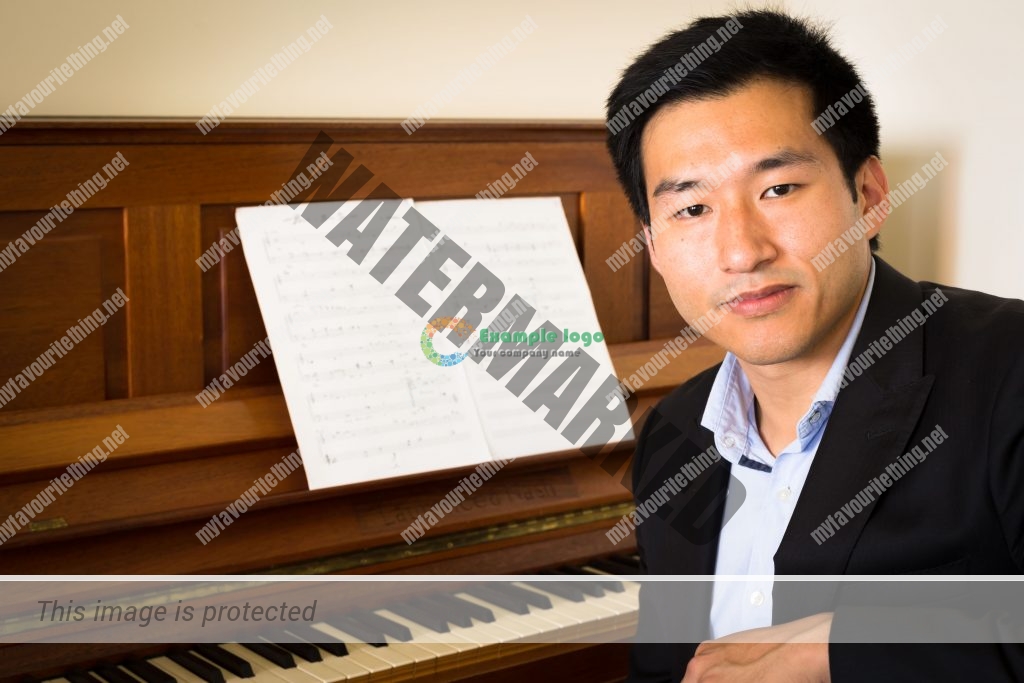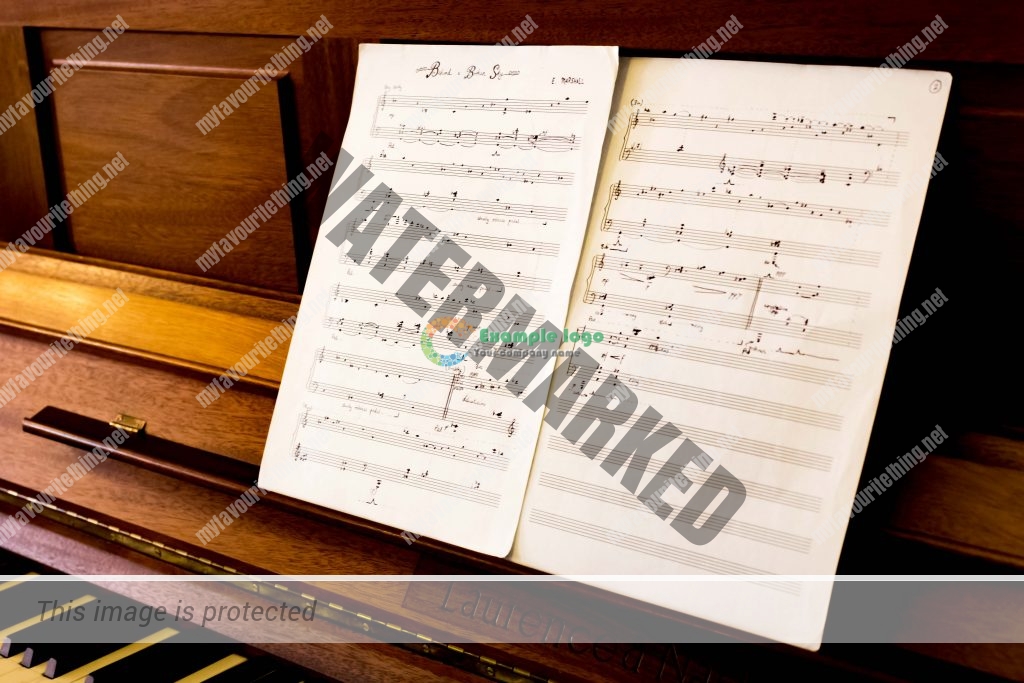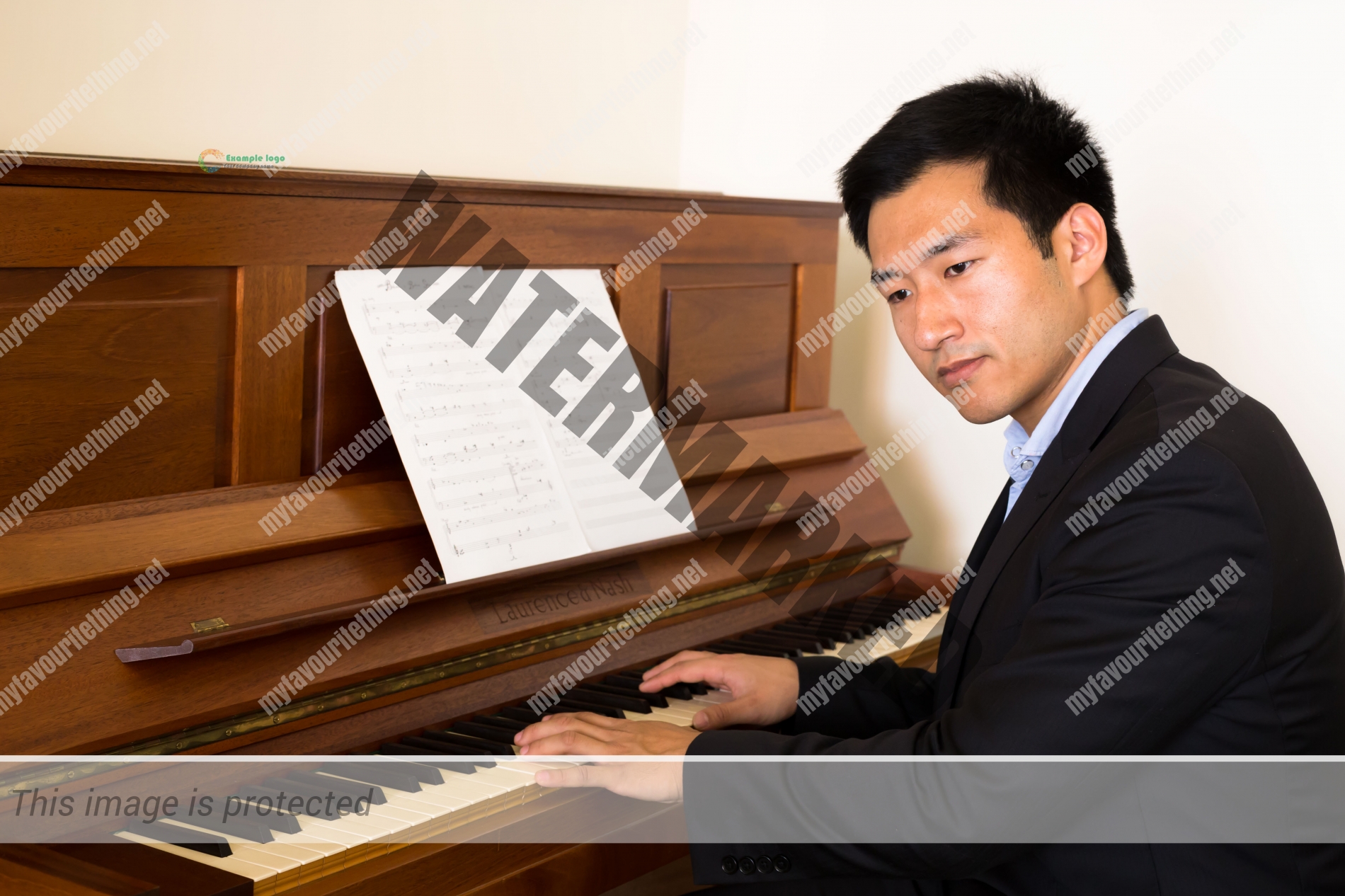Eugene Marshall
Composer and Student Union President at the Royal College of Music, London
Favourite thing: Manuscript “Behind a Broken Sky”
“My favourite thing… it’s nothing that you wouldn’t expect. It’s a manuscript of a piece that I wrote when I did my masters here. It’s just two pages. But what’s special about this particular manuscript is the context in which it was written. I had crippling writer’s block. It had been haunting me for about 15 months, whereby I just couldn’t write anything. It wasn’t permeating just my musical creativity but my entire being. And all of my emotions were becoming numb. It was a very difficult time.
“I had to shed layer after layer of self-consciousness”
I started to really re-evaluate the way that I looked at music and creativity. I had to shed layer after layer of self-consciousness and doubt and come back to the drawing board. This was a very infantile piece of music that grew without any kind of expectation. It just flowed and I had to continuously suppress my ego and stop it from casting doubt upon the piece. It’s a very short piece. I wrote it one sitting. In fact this is only half of it because I proceeded on to the final version immediately after getting halfway through. So as far as draft goes, there was this little 3-line sketch, then half a completed piece and then the final piece.
“I think it’s the piece I’m most proud of in my life”
This piece did mark the most recent breakthrough that I’ve had in my compositional process. So it is a very special piece and I think it’s the piece that I am most proud of in my life.

“If I hadn’t written this, I wouldn’t be a musician”
If I hadn’t written this, I wouldn’t be a musician. This is absolutely the piece that reminded me, actually you have something unique and creative to offer the world. You’ve overcome a barrier, you’ve got something ahead of you. There is a future in this industry for you. And so even if I go on to write a thousand pieces in my lifetime, this one’s always going to be a very, very intimate part of my life. I would not give this manuscript away, I would not sell it to anyone, I would not donate it to anyone. This is absolutely mine and in fact I don’t even show it to people; I let them see the finished product but the manuscript, the rawness of that… this is it’s humble origin here.
So I took away everything. There are no rhythms. It looks very, very naive. And that was the point: I just heard notes and intervals that I liked and spatially represented them.
So what had you been doing up to that point to try to write music?
“Everything. I mean I went back to the music of my childhood. I did extensive research on music and emotion which actually made it worse because you can’t intellectualise emotion and expect to be cured of that. Then I found this fascinating book about how, why we, as human beings, are so in love with music and that, ironically, killed it for me: I became even worse. I took counselling. I did meditation. I started changing genres, so I started writing more popular styles of music. I started pushing myself to be avant garde. I started playing music rather than just writing it. I started playing music for my friends and enjoying, privileging, the social aspect of music.”
“I kept working myself into this really bad place and it paralysed me”
Nothing really did work for me. It was in the education because when you’re trained to be a composer you do… one cannot mark art subjectively: you have to be objective and you have to really privilege techniques so in a way, an education in musical composition encourages one to shy away from the emotional aspect of your craft. And, you know, every note that I wrote, it would be under constant scrutiny. I could spend an hour just agonising… is that the right note and, in the grand scheme of things, actually it didn’t really matter that much: it was one note in thousands. But I kept working myself into this really bad place and it paralysed me.
I don’t know what it was about the process that I took on for this piece but something just happened and it just appeared on the page. I think also it had a very, very extra-musical reason for coming into being. You can see the title is “Behind a Broken Sky” and that was because I wrote this piece at a particularly homesick point. I’m Australian. I was just looking around me at the London skyline one day and I was saying, I feel like a little ant in a prison here. I can’t see the sky. I love going out into the English countryside whenever I can just to remind myself that I’m a human being. I felt very claustrophobic in this city. I felt homesick. You know, Australia is a vast, sprawling country, so I was… And that nostalgia, that longing did prompt the music in a way. On that level it’s also a very precious piece to me.”

